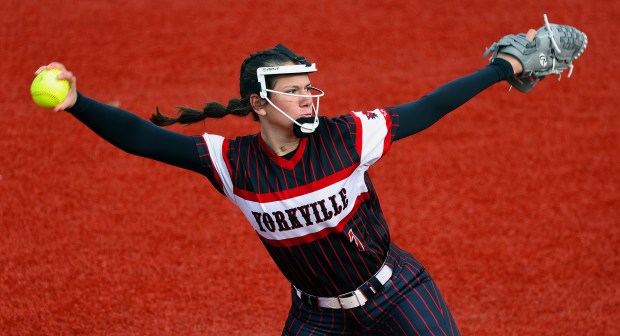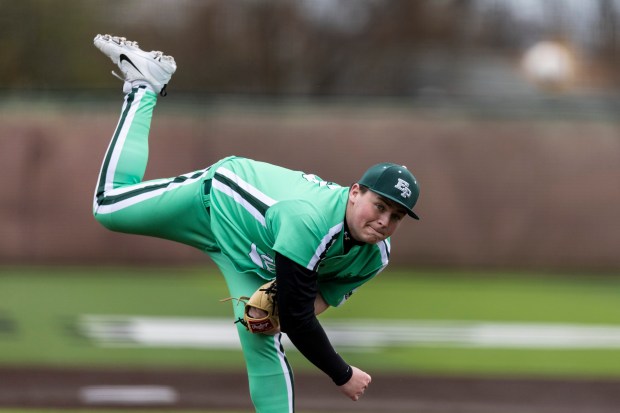The Chicago City Council voted again Thursday to reject a police union contract provision that would allow the most serious misconduct cases to be heard behind closed doors.
Aldermen sided with Mayor Brandon Johnson 32 to 18, opting to turn down the measure after deferring a vote twice in the last month. The decision sets the city and its rank-and-file police union up for a court battle to determine the future of police misconduct hearings.
After the latest vote, Johnson said the result showed the council is acting in residents’ best interests.
“Today was just affirmation that there is a commitment to a transparent process to ensure there is a real, serious effort to make sure whatever breakdown exists between residents of the City of Chicago and law enforcement, that we work to heal that,” he said at a City Hall news conference.
The vote puts the fate of serious police misconduct hearings for now in the hands of the Cook County judge hearing an ongoing case between the city and the Chicago Fraternal Order of Police sparked by an FOP lawsuit.
Attorneys representing the city and the FOP are scheduled to appear before Judge Michael Mullen on Feb. 26.
In December, the council voted 33-17 at Johnson’s behest to vote down the provision as aldermen approved an economic package giving many police a 20% raise over four years. Allies of the mayor have since tabled scheduled votes on the issue in two recent meetings.
The back-and-forth began when arbitrator Edwin Benn last year awarded officers accused of misconduct the option to remove their cases from the Chicago’s Police Board docket and instead have them decided privately by an outside third party. Benn determined CPD officers have that right as members of a public-sector labor union and warned efforts to overturn his decision in court will fail.
But city attorneys have told aldermen Chicago does have a chance to maintain public misconduct hearings, an opinion shared by the leaders of the Chicago Police Board and Community Commission for Public Safety and Accountability opposed to private misconduct arbitration.
Aldermen who voted against the closed-door misconduct hearings argued Thursday that a change to private arbitration would harm transparency and undo police reform efforts.
“Doing it all behind closed doors to absolve somebody of any level of accountability is not the right way to do it,” Ald. Andre Vasquez, 40th, said. “It’s not public, it’s not fiducially responsible.”
But opponents countered that rejecting the contract provision again will make the city vulnerable to expensive lawsuits and deny police officers fair consideration.
“The right to arbitration is clear as day,” Ald. Silvana Tabares, 23rd, said. “You’re starting a process that will end in millions of settlement cash going into the pockets of police officers, even those who should be fired.”
FOP President John Catanzara had shouted in the council chambers that the city needs to “get your checkbooks ready” when aldermen blocked private arbitration at an earlier hearing, but was quiet when the vote came on Thursday.
The result wasn’t surprising, he said afterward.
“They’ve all but thrown the gauntlet down,” Catazara said, predicting a tough court battle ahead and political blowback from the union toward Johnson. “He quarterbacked this whole thing. He just made himself public enemy number one in 2027.”
The FOP did not support Johnson in the 2023 mayoral election, and Catanzara has long been highly critical of him.
After the City Council last deferred a vote on misconduct hearings, Mullen agreed with both sides in the case to put a hold on all Police Board proceedings until the next status update — scheduled for the last week of February.
Twenty-one pending police misconduct cases are now frozen by the judge’s order. Seven of those cases stem from allegations of improper use of deadly force, records show. Among them is the case of CPD officer Eric Stillman, who fatally shot 13-year-old Adam Toledo in Little Village in 2021.
The union contends in court the Illinois Uniform Arbitration Act is clear, and that the law should trigger the award taking effect. But in their first written response to the FOP’s complaint, filed Wednesday, attorneys for the city denied that the arbitration award was enshrined in state law.
City attorneys further denied that the union “is entitled to any relief.”
jsheridan@chicagotribune.com




